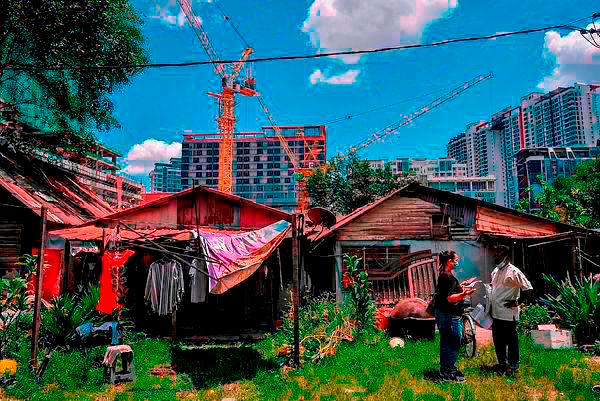KOTA KINABALU: The majority of hardcore poor individuals registered in the eKasih system in Sabah are aged over 64, posing a challenge to lift them out of poverty, the state assembly was told today.
State Rural Development Minister Datuk Jahid Jahim said that based on data obtained from the Sabah Development Office, 18,853 hardcore poor individuals, as of Oct 31, have registered with eKasih.
“A total of 16.5 per cent of the total registered household heads in the eKasih system fall under the category of hardcore poor,” he said when responding to a question from Datuk Hassan A Gani Pg. Amir (GRS-Sebatik) on the challenges of eradicating hardcore poverty in Sabah during the state assembly sitting here.
In addition to the large numbers, he said other challenges involving the hardcore poor include them living in remote locations, which made it difficult to participate in government-organised income-generating programmes.
“Some are reluctant to relocate, while some do not even want to cooperate when programmes are organised. Some lack specific self-improvement skills.
These challenges, however, will not dampen the state government's spirit to continue efforts to eradicate hardcore poverty in the region through various planned programmes, Jahid stressed.
Meanwhile, State Community Development and People's Well-being Minister Datuk James Ratib said the higher production of chickens in Peninsular Malaysia compared to Sabah is the reason for the price difference between the two regions.
He said when the Maximum Pricing for Chicken and Chicken Eggs (PHMAT) was implemented, the standard chicken price in Peninsular Malaysia was RM9.40, while in Sabah it was RM11, adding that for super Chicken, in Peninsular Malaysia, it was priced at RM10.40 and RM12 in Sabah.
“The higher cost of raw materials for chicken feed in Sabah, which is 20 per cent higher than in Peninsular Malaysia, contributes to 70 per cent of the production cost of broiler chickens and chicken eggs.
“Logistics costs are also high due to the vast area, terrain conditions and less developed road infrastructure in Sabah compared to Peninsular Malaysia,” when replying to Mohd Tamin Zainal (BN-Pantai Manis) who had asked about the price difference between both regions.
James also said that shipping costs are higher for Sabah than for Peninsular Malaysia mainly because the exchange of ships at Port Klang was necessary, as local chicken farmers in Sabah cannot import raw materials in large quantities.
“This leads to an increase in costs for Sabah farmers ranging from 15 to 20 per cent (compared to Peninsular Malaysia),” he said. -Bernama








